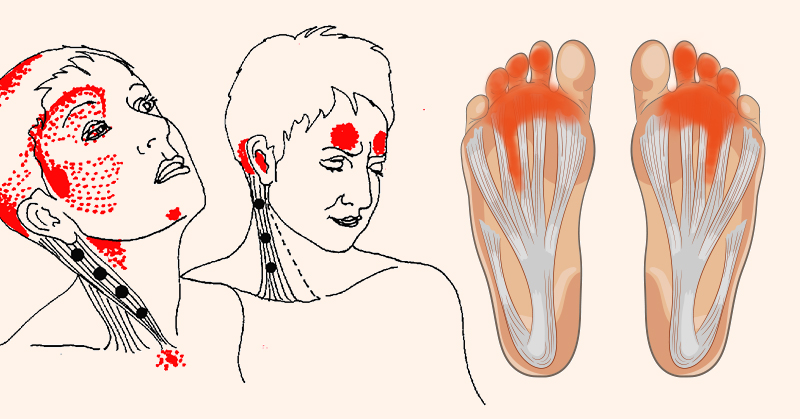Feeling drained, unmotivated, or forgetful? These might be more than just a bad day—they could signal a vitamin B12 deficiency. Vitamin B12 is crucial for your body’s energy production and overall health, but many of its deficiency symptoms are often overlooked. From tingling sensations to mood changes, understanding the warning signs is the first step toward better health.
What Are the Symptoms of Vitamin B12 Deficiency?

A vitamin B12 deficiency can manifest in several ways, and the symptoms aren’t always obvious. Common signs include fatigue, brain fog, and low mood, but it can also cause physical and neurological issues such as:
- Tingling or numbness in the hands, feet, or legs
- Difficulty walking or balance problems
- A swollen or inflamed tongue
- Jaundiced skin
- Paranoia or hallucinations
- Weakness or anemia
Because B12 plays a vital role in nerve function and red blood cell production, these symptoms shouldn’t be ignored.
Why Is Vitamin B12 So Essential?

Vitamin B12 is a nutrient the body can’t produce on its own, meaning you must obtain it from food or supplements. It’s especially important for energy production, red blood cell formation, and neurological health. Studies suggest that nearly 40% of North Americans are deficient in this essential vitamin, with rates even higher among those with conditions like Chronic Fatigue Syndrome or Fibromyalgia.
Testing for B12 Deficiency

Determining if you have a B12 deficiency isn’t always straightforward. While serum B12 tests are commonly used, they don’t measure how well your body is utilizing the vitamin. For a more accurate diagnosis, ask your doctor about an Intracellular B12 test. If that’s unavailable, tests for Methylmalonic Acid (MMA) and Homocysteine levels can offer additional insights.
What Causes a B12 Deficiency?

Several factors can lead to a deficiency in this vital nutrient:
Pernicious Anemia

This autoimmune condition damages stomach cells responsible for producing intrinsic factor, a protein needed for B12 absorption. Without intrinsic factor, your body struggles to absorb B12 from food, leading to a deficiency.
Leaky Gut Syndrome

Conditions that disrupt the gut lining, such as gluten sensitivity, bacterial infections, or excessive sugar intake, can impair your ability to absorb nutrients, including B12. Addressing gut health through dietary changes can significantly improve absorption.
Poor Gut Microbiome

An imbalance of gut bacteria can interfere with nutrient absorption. To maintain a healthy microbiome, reduce sugar intake and increase probiotic-rich foods like yogurt, sauerkraut, and kefir.
Medications for Heartburn

Many heartburn medications reduce stomach acid, which is essential for breaking down and absorbing B12. If you’re experiencing persistent heartburn, address the root cause rather than relying solely on medication.
Chemotherapy Side Effects

Chemotherapy treatments can damage the gut lining, making it harder for your body to absorb essential vitamins like B12 and folic acid. High-quality supplements may help mitigate these effects.
Dietary Solutions for B12 Deficiency

Dietary solutions for addressing a B12 deficiency primarily involve increasing your intake of animal-based foods, which are the richest sources of this essential nutrient. Incorporating options like wild-caught fish, free-range poultry, grass-fed beef, and organ meats such as liver can significantly boost your levels. For those following a vegetarian or vegan diet, fortified plant-based foods and high-quality supplements can help bridge the gap. Additionally, pairing B12-rich foods with a healthy gut microbiome can enhance absorption, making probiotic-rich options like yogurt, kefir, and fermented vegetables valuable additions to your diet. By prioritizing nutrient-dense choices, you can combat deficiency and support optimal health.
Eat More Meat

Animal products are the richest sources of B12. Opt for wild-caught fish, grass-fed beef, and organ meats like liver to boost your intake naturally.
Consider Supplements

For vegetarians or those struggling to meet their B12 needs, supplements like Methylcobalamin or Cyanocobalamin can be effective. Consult your healthcare provider to determine the right dosage.
Focus on Probiotic Foods

A healthy gut promotes better nutrient absorption. Include fermented foods like kimchi, kombucha, and dark chocolate in your diet for a natural boost.
Eliminate Inflammatory Foods

Cutting out processed foods, sugar, and gluten can improve gut health, enhancing your body’s ability to absorb B12 and other nutrients.
Try Desiccated Liver Supplements

If organ meats aren’t appealing, desiccated liver capsules provide an excellent alternative for a natural source of B12.
Conclusion: Take Control of Your B12 Levels

Vitamin B12 is essential for maintaining your energy, mood, and overall health. Recognizing the symptoms of deficiency and addressing them through diet, supplements, or medical care can make a significant difference in your well-being. Whether it’s eating more nutrient-rich foods, balancing your gut microbiome, or seeking professional guidance, taking steps to optimize your B12 levels is a simple yet powerful way to improve your health. Don’t let a deficiency hold you back—take action today!
Dr. Habib is a Chiropractor, Functional Medicine Practitioner and Acupuncture Provider based out of the Greater Toronto Area. He consults with patients world-wide in regards to autoimmune, brain, gut and hormone health conditions. His goal is to find the root cause of the biochemical, physiologic, genetic, environmental and lifestyle factors contributing to his patients symptoms. Virtual consultations are available world-wide and on location in Toronto.
Sources
- Vitamin B12: What to Know. (n.d.). Retrieved January 19, 2018, from https://www.webmd.com/diet/vitamin-b12-deficiency-symptoms-causes
- (n.d.). Retrieved January 19, 2018, from https://www.ars.usda.gov/news-events/news/research-news/2000/b12-deficiency-may-be-more-widespread-than-thought/
- https://www.health.harvard.edu/blog/vitamin-b12-deficiency-can-be-sneaky-harmful-201301105780
- (n.d.). Retrieved January 19, 2018, from https://www.nhs.uk/conditions/vitamin-b12-or-folate-deficiency-anaemia/diagnosis/
- Vitamin B12: What to Know. (n.d.). Retrieved January 19, 2018, from https://www.webmd.com/diet/vitamin-b12-deficiency-symptoms-causes#1
- Food Sources of Vitamin B12. (n.d.). Retrieved January 19, 2018, from https://www.dietitians.ca/Your-Health/Nutrition-A-Z/Vitamins/Food-Sources-of-Vitamin-B12.aspx
- Rossi, M., Amaretti, A., & Raimondi, S. (2011, January). Folate Production by Probiotic Bacteria. Retrieved January 19, 2018, from https://www.ncbi.nlm.nih.gov/pmc/articles/PMC3257725/
This article was originally published in May 2016 and has since been upated. Written By: Dr. Navaz Habib, DC
